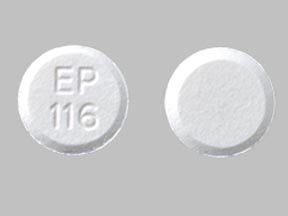
Furosemide Coupons & Savings Card – Discount Prices from $5.98
Generic for: Lasix, Furoscix, Lasix onyu
My prescription
Edit
20MG, Furosemide (30 Tablets)
Select pharmacy

CVS
$18.93
COUPON PRICE
Walgreens
$5.98
COUPON PRICE
Albertsons
$6.80
COUPON PRICE
Walmart
$7.28
COUPON PRICEFurosemide savings card
Show this card to your pharmacist
Walgreens
$5.98
BIN
ID
PCN
GRP
015995
LHKPW378830
GDC
DR33
Powered by
More prescriptions for hypertension
More prescriptions for hypertension
Price history for Lasix (brand) & Furosemide (generic)
30 Tablets, 20MG
Average retail price for Lasix
Average retail price for Furosemide
Average SaveHealth price for Furosemide
Our price history data is based on aggregated prescription data collected from participating pharmacies in America. Our prescription data updates daily to reflect the latest price changes. If you notice a missing data point, it means there wasn't sufficient data available to generate a monetary value for that date.
We analyzed Furosemide prices for (20MG, 30 Tablets) over the last 12 months. The average retail price was $14.48, while the average price using the SaveHealth discount card was $10.53. That's a savings of approximately 27.28% when using our Furosemide coupon.
Compared to the generic version, Lasix had an average price of $44.39 over the same time period. With the SaveHealth savings card, Furosemide is 76.28% cheaper on average than Lasix.
*Retail prices are based on pharmacy claims data, and may not be accurate when we don't have enough claims.
Furosemide dosage forms
Dosage Quantity Price from Per unit 20MG 30 Tablets $9.79 $0.33 20MG 45 Tablets $10.18 $0.23 20MG 60 Tablets $10.57 $0.18 20MG 90 Tablets $17.50 $0.19 20MG 180 Tablets $20.01 $0.11 40MG 30 Tablets $9.92 $0.33 40MG 45 Tablets $10.38 $0.23 40MG 60 Tablets $10.84 $0.18 40MG 90 Tablets $17.91 $0.20 40MG 180 Tablets $20.82 $0.12
| Dosage | Quantity | Price from | Per unit |
|---|---|---|---|
| 20MG | 30 Tablets | $9.79 | $0.33 |
| 20MG | 45 Tablets | $10.18 | $0.23 |
| 20MG | 60 Tablets | $10.57 | $0.18 |
| 20MG | 90 Tablets | $17.50 | $0.19 |
| 20MG | 180 Tablets | $20.01 | $0.11 |
| 40MG | 30 Tablets | $9.92 | $0.33 |
| 40MG | 45 Tablets | $10.38 | $0.23 |
| 40MG | 60 Tablets | $10.84 | $0.18 |
| 40MG | 90 Tablets | $17.91 | $0.20 |
| 40MG | 180 Tablets | $20.82 | $0.12 |
| 80MG | 30 Tablets | $10.49 | $0.35 |
| 80MG | 60 Tablets | $11.98 | $0.20 |
| 80MG | 90 Tablets | $19.65 | $0.22 |
| 80MG | 120 Tablets | $21.20 | $0.18 |
| 80MG | 180 Tablets | $24.29 | $0.14 |
